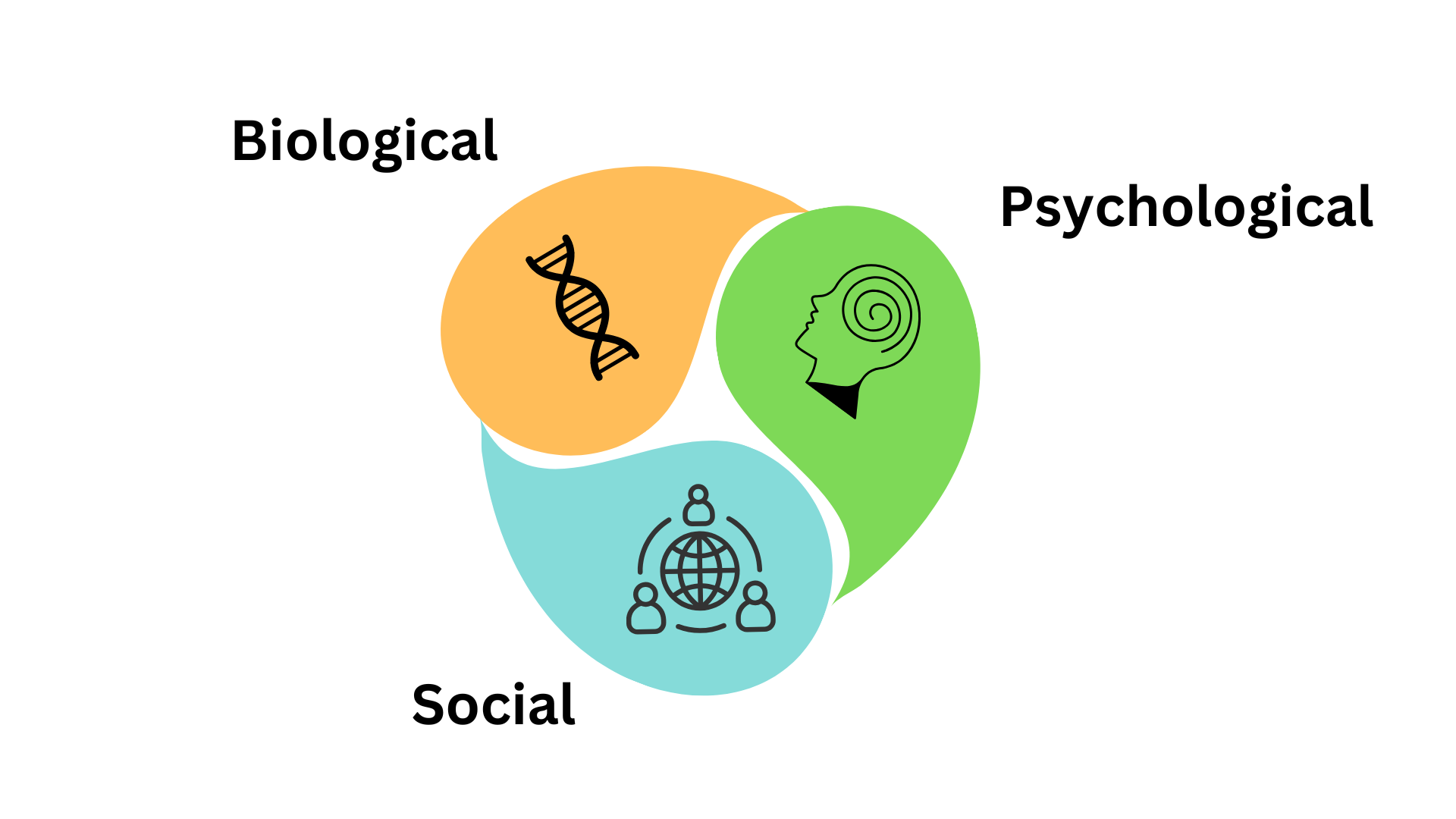About Depression
DEPRESSION IS MORE COMMON THAN YOU THINK
Millions of people around the world experience depression. It can happen to anyone, no matter their background or life situation.
Symptoms of Depression

It's More Than Just Feeling Sad
Depression is characterized by a range of symptoms that are experienced for a prolonged period of time.
Depression is different for everyone
Individuals with depression may experience a variety of symptoms that differ from person to person. They may also hold different perceptions towards the illness, as well as giving it a different meaning. Below is a video by the World Health Organization depicting one such representation.
Causes of Depression

Biopsychosocial Factors
No factor can lead to depression single-handedly! Rather, it arises from a combination of biological, psychological and social factors.
Biological Factors
Genetic predisposition plays a crucial role in an individual’s likelihood of experiencing depression.
Chemical imbalances in the brain can lead to abnormal fluctuations in mood.
Psychological Factors
Negative thinking patterns can lead to excessive rumination on past events, driving individuals into a spiral of persistent negative thoughts.
Traumatic life experiences such as loss or abuse, can contribute to the development of depression.
Social Factors
A lack of social support removes the protection and resources that individuals need to cope with stress.
Stressful life events like changing of workplace or preparing for exams can trigger or exacerbate depression, impacting mental health significantly.
Help is Available - And It Works
Talking to Someone
Talking to a friend or family member can provide immediate support and understanding. Sharing feelings can relieve emotional burden and enhance connection.
Therapy Options
Various therapeutic approaches exist, including cognitive behavioral therapy (CBT), which can help change negative thought patterns.
Medication Assistance
Antidepressants can be effective for many individuals. A healthcare provider can help determine if medication is appropriate.
Lifestyle Changes
Incorporating regular exercise, a balanced diet, and adequate sleep can significantly impact mood and overall well-being.
Recovery is Possible
Everyone’s journey is unique, but recovery is possible. Utilizing available resources can lead to significant improvement in mental health.

